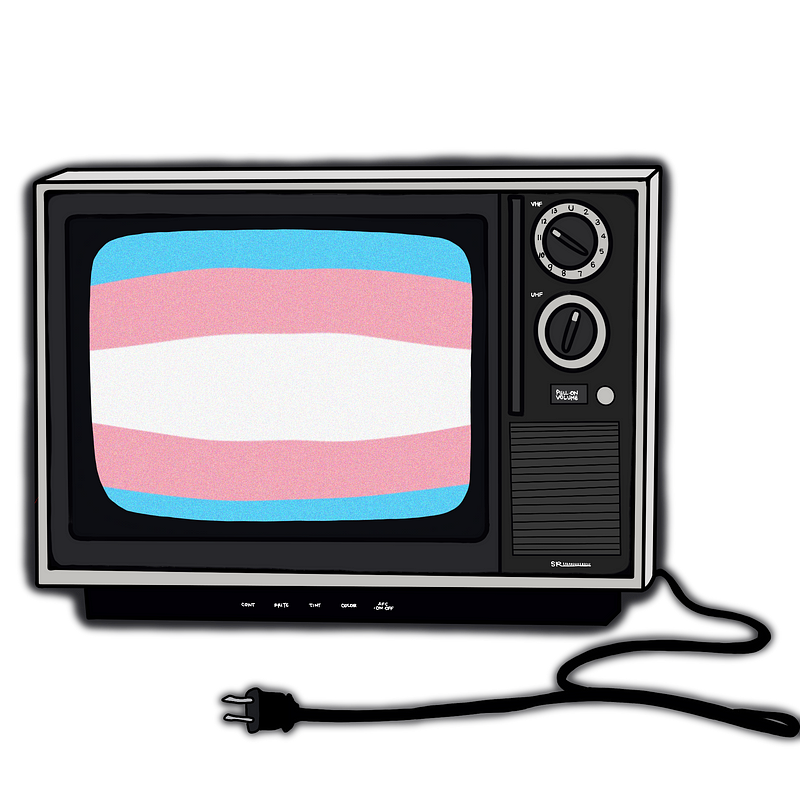Dear Cis People,
Why Netflix’s “Disclosure” is a must-watch for cis people
Story by Jordan Van Beek

W e need to educate and open our eyes to the glaring issues facing the trans community. I just want to start off by saying that even though I always listen to trans voices and try to educate myself on the issues, I cannot even pretend to say that I understand the pain and oppression that is felt by trans people. I do, however, want to share my insight on the problematic stereotypes that movies and television have ingrained in our society about trans people.
We must push for more and better representation, but we also cannot stop there; we must stand up for trans people and continue to fight for equal treatment in our laws and in our society.
What really opened my eyes to the issues of representation for trans people is Netflix’s “Disclosure,” a documentary on transgender representation in film and television. “Disclosure” gives a thorough examination of Hollywood and the problematic depictions of gender in film through the voice of leading trans thinkers and creatives.
As a cisgender man, I didn’t grow up thinking about the problematic stereotypes in the entertainment industry. I didn’t realize until later in my life that a lot of the movies and television shows that I grew up on had so many troublesome “jokes” and portrayals, especially towards the transgender community. Unfortunately, it was hard to escape these shows and movies that made fun of trans people, as they were pretty much everywhere. In the much-loved show “Friends,” Kathleen Turner played the role of Chandler’s biological father, who was a transgender woman. The character’s gender identity is never fully discussed, she constantly gets misgendered and ends up being a walking punchline.
The joke that is constantly repeated in shows and movies is about a man dressing in women’s clothing. This kind of trope exists to make fun of transgender women and should make you cringe anytime you see a show, new or old, use this as a “joke.”
As cis people, we constantly see our heroes on-screen represent what we look like. For trans people, most of the representation they get to see of themselves are problematic stereotypes. For example, when the transgender character always gets killed off either because of a transphobic crime or dying from the meds they are using for their gender confirmation.
I watched “Disclosure” as a way to further educate myself on many of our society’s glaring issues, which seems to be in just about every aspect of our world. I was deeply saddened to see how surprised I was that there were so many occurrences of awful portrayals and mistreatment of transgender actors and trans life altogether.
The documentary, and Nikki Reitz’s study of the representation of trans women in film and television, show that the storyline for a lot of trans characters is that coming out as trans inflicts and burdens the cis people around them. Like making it seem like the sheer existence of transgender people is too much for cisgendered people to bear, which is devastating because it can be difficult to accept their own identity when they see the reflections of themselves being treated awfully in the shows and movies they grow up watching.
84% of Americans say they do not personally know someone who is transgender or don’t know that they do, which means the only way most cis people learn about trans people is through images shown in the media. This is scary because the media and entertainment industry has so much power to be able to show marginalized groups in a bad light and shape the narrative for the majority of the country.
If there was more representation of trans people and trans culture in shows and movies, it would make these awful representations less damaging. The GLAAD Annual Report shows that of the 329 regular and recurring LGBTQ+ characters on screen in the 2017–2018 television season, only 17 were transgender. Laverne Cox, a transgender actress, played a lead role in a CBS legal drama “Doubt” which was shockingly canceled after only two episodes due to bad ratings and critics saying the show “deserved a better cast.”
“I wonder if people who watch and love these shows,” Cox said during the documentary. “I wonder if they will reach out to trans people in need and work to defeat policies that scapegoat us, policies that discriminate against us, policies that dehumanize us. Because until that happens, all that energy from the silver screen won’t be enough to better the lives of trans people off the screen.”
You should feel heartbroken after watching this documentary for supporting these problematic shows in the past and ignoring the problems that the trans community faces. The best thing that we as cis people can do with this feeling is to use it to educate others around us.
With so many problematic systems and people getting brought to light recently, I’ve always tried to think twice about the places I spend money or support; this is no exception. I won’t stop my education of trans life with just one documentary, and neither should you.
As cis people, we should all listen and uplift trans voices and appreciate trans art and community. Cis people need to join in supporting and promoting more representation of trans people and culture, but we also must stand up for trans people by stopping the spread of hateful language and jokes. It all starts with education and listening, and us cis people need to do a lot more of that. We shouldn’t stop educating ourselves after watching just one documentary. To continue to be an ally to transgender people, check out GLAAD’s tips.
